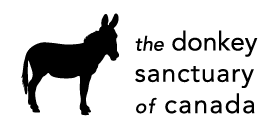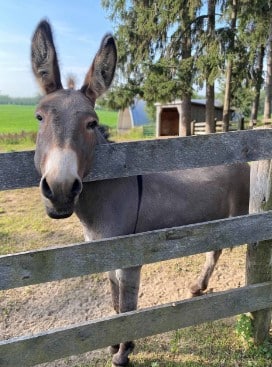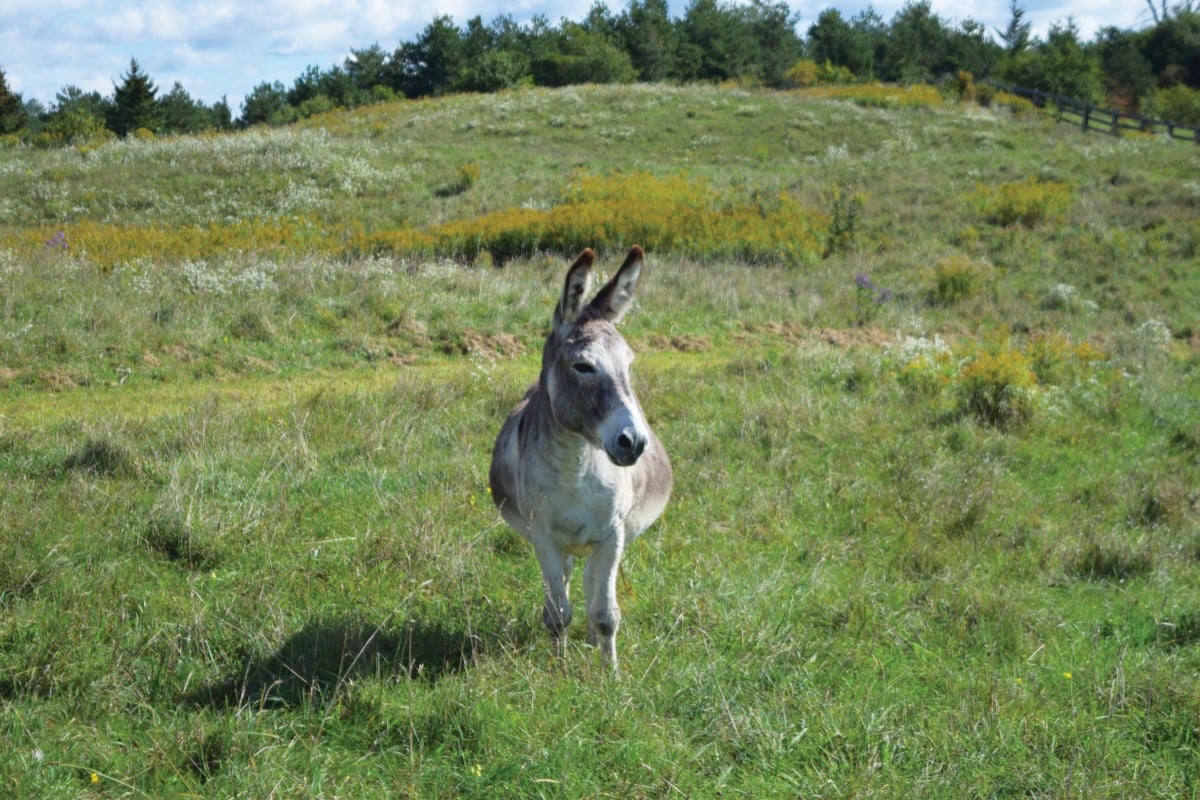Did you know that over 99% of the worlds population of donkeys live outside of Canada? Whether in tourism or in impoverished countries that depend on them for every-day life, the welfare issues that North American donkeys experience ultimately represent a small, piece of the pie (Psst! This is part of what makes our work so important, as donkeys in Canada are often overlooked which increases instances of abuse and neglect)
The Donkey Sanctuary of Canada does not currently have a platform to aid in international donkey welfare issues due to our lack of proximity to these parts of the world. Instead, we focus our resources on helping the donkeys we can, here in Canada. We do however support the work of organizations such as The Brooke, https://www.thebrooke.org/ , The Donkey Sanctuary (UK-based) https://www.thedonkeysanctuary.org.uk/ and The Society for the Protection of Animals Abroad (SPANA) https://spana.org/ who do have international programs to tackle welfare issues that sadly affect so much of the world’s population of donkeys and mules.
Though our location may prevent us from direct involvement in these aspects of donkey welfare, we still strive to provide you with the must up-to-date information on these issues.
As a tourist and global consumer, you may have a bigger impact than you think of improving the lives of donkeys across the world. Click more below to learn about the most recent updates in international donkey welfare and how you can be apart of the change!
- Donkey Skin Trade
Did you know that in many parts of the world, a donkeys skin is considered to be very valuable? Sadly, millions of donkeys are inhumanely killed every year in support of the Donkey Skin Trade—a global market for the buying and selling of donkey skin for the production of ejiao.
WARNING: CONTENT AHEAD MAY CAUSE UPSET TO SOME READERS
Ejiao is a key ingredient in many traditional Chinese health remedies. It is made primarily from the collagen found in the skin of donkeys and China is the main exporter. Chinese populations were quickly wiped out to support this industry which has caused the donkeys market value to skyrocket and lead to the outbreak of global markets looking to benefit from their sale. Sadly, donkey slaughter is wildly unregulated—animals travel great distances, often famished and in pain, to be inhumanely stripped of their skin. Many donkeys perish simply from the harsh journey to the slaughterhouses, alone.
END OF WARNING
Demand is increasing to such levels that donkey populations around the world are being depleted to near-endangered levels. This has made exporters even more desperate to take donkeys for any reason, including poaching them from the impoverished communities that call them family and depend on them for their every-day life.
While we have seen little evidence of the Donkey Skin Trade in Canada so far, we need to be poised for when it inevitably comes. Here are some tips for the public to ensure the safety of our donkeys:
- Report ads for buyers looking for the mass purchase of donkeys
- Be careful about who you rehome your donkeys to
- Ensure you have secure fencing and barns. Installation of security cameras has multiple benefits in ensuring the health and safety of your animals!
- Be mindful about the organizations you buy your products from and their ingredients
- The working Donkey
Did you know that over 90% of the world’s population of approximately 44 million donkeys are currently used for work? Most of these donkeys live in underdeveloped countries across Northern Africa, Asia and the Middle East. In these parts of the world, donkeys are crucial for families who have no other choices for transportation and help to supply them with food, water and other necessities. Historically, many of these jobs have been left to the women and children of these households, so donkeys have played a huge part in improving their quality of life and allowing them to spend more time becoming educated and helping their families in other ways. Donkeys also play a huge role in developing their home countries as they are used in the development of homes, schools and other projects.
As the world’s resources improve and we increase our focus on humanitarian aid, donkeys are and important focus as international donkey welfare organizations help to provide communities with the proper knowledge, resources and funding to care for their donkeys.
- Donkey Tourism
In many parts of the world, especially southern European countries like Greece, donkeys and mules give thousands of people jobs in the department of tourism. Often they are used for carrying luggage and giving tours and transportation to travelers.
While it can be great to work alongside donkeys and give them certain jobs and exercise, conditions in some areas are often left unregulated, leaving donkeys carrying overly heavy loads and lacking access to sufficient food, water and shelter. International donkey welfare organizations have made leaps in strides in working with these countries to ensure proper standards for their care are being met!
When you travel, please consider using alternative services if the donkeys and mules do not appear to have fresh water, food and access to shelter.


